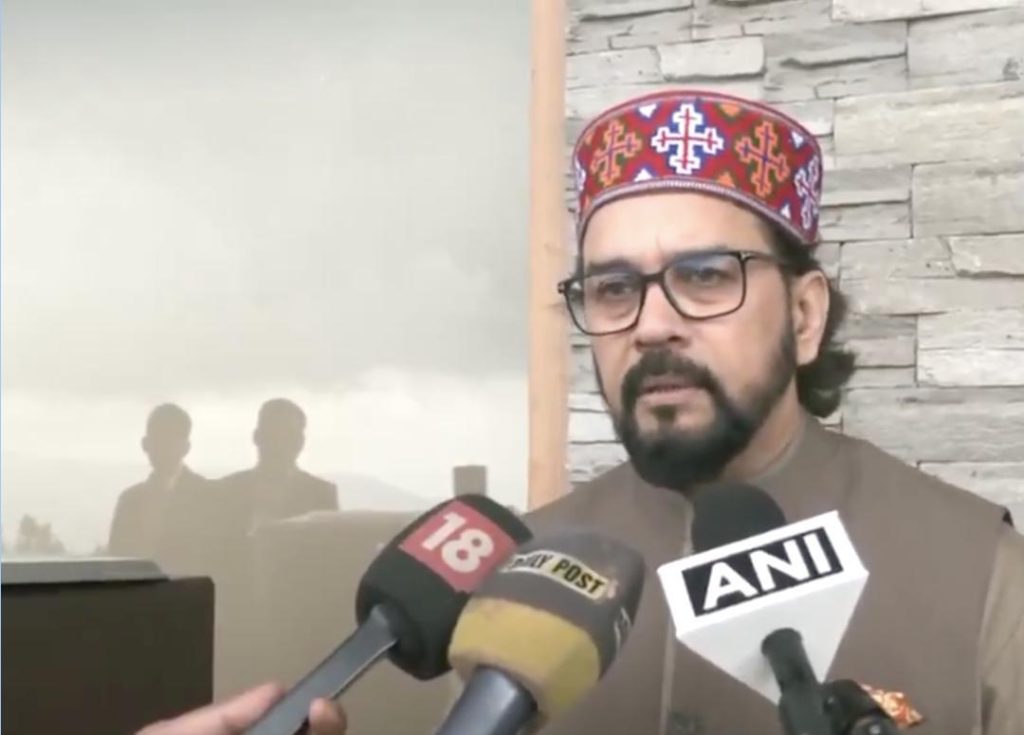
Title: One Nation, One Election will strengthen democracy: Anurag Thakur
In a recent statement, BJP MP and member of the Joint Parliamentary Committee on ‘One Nation, One Election’, Anurag Thakur, emphasized that the bill aimed at synchronizing elections for the Lok Sabha and state assemblies will accelerate India’s development and strengthen democracy. According to Thakur, a lot of time and money is wasted on conducting separate elections, which hinders the country’s progress and creates problems for people in hilly regions.
The concept of ‘One Nation, One Election’ has been gaining momentum in recent times, with many experts and politicians advocating for its implementation. The idea is simple – to conduct all elections, including those for the Lok Sabha and state assemblies, simultaneously to reduce the burden on the Election Commission and minimize the disruption caused by frequent polls.
Thakur’s statement is significant, considering the BJP’s long-standing support for the bill. The party has been pushing for the implementation of ‘One Nation, One Election’ since the early 2010s, and Thakur’s comments are a testament to its commitment to the cause.
One of the primary arguments in favor of ‘One Nation, One Election’ is the reduction in costs associated with conducting multiple elections. As Thakur pointed out, a lot of time and money is wasted on separate elections, which could be better utilized for development projects. This is particularly important in a country like India, where the budget for elections is already substantial.
Another significant advantage of ‘One Nation, One Election’ is the reduction in voter fatigue. Frequent elections can lead to voter fatigue, where people become disillusioned with the political process and stop participating in elections. By conducting all elections simultaneously, voters will have a chance to exercise their franchise without feeling overwhelmed by multiple polls.
The concept also has implications for the country’s development, particularly in hilly regions. As Thakur mentioned, frequent elections create problems for people living in these areas, who often face difficulties in accessing polling stations due to the terrain. ‘One Nation, One Election’ would simplify the process, reducing the burden on these voters and making it easier for them to exercise their democratic rights.
However, there are also concerns about the implementation of ‘One Nation, One Election’. One of the primary concerns is the possibility of a single party dominating the political landscape. With all elections conducted simultaneously, a party that wins a majority of seats in one election may use its leverage to influence the outcome of other elections. This could lead to a situation where the opposition is marginalized, reducing the competitiveness of elections.
Another concern is the potential for a longer election season. Conducting all elections simultaneously would require a longer election season, which could lead to a prolonged period of uncertainty and instability. This could be particularly problematic for businesses and investors, who rely on political stability to make decisions.
Despite these concerns, the benefits of ‘One Nation, One Election’ are significant. The bill has the potential to accelerate India’s development, strengthen democracy, and reduce the burden on voters. It is essential for the government and opposition parties to work together to implement the bill, addressing the concerns and issues that arise during the process.
In conclusion, Anurag Thakur’s statement highlights the importance of ‘One Nation, One Election’ in strengthening democracy and accelerating India’s development. While there are concerns about the implementation of the bill, the benefits are significant, and it is essential for the government and opposition parties to work together to make it a reality.
News Source:
https://x.com/ANI/status/1935658962252128381






